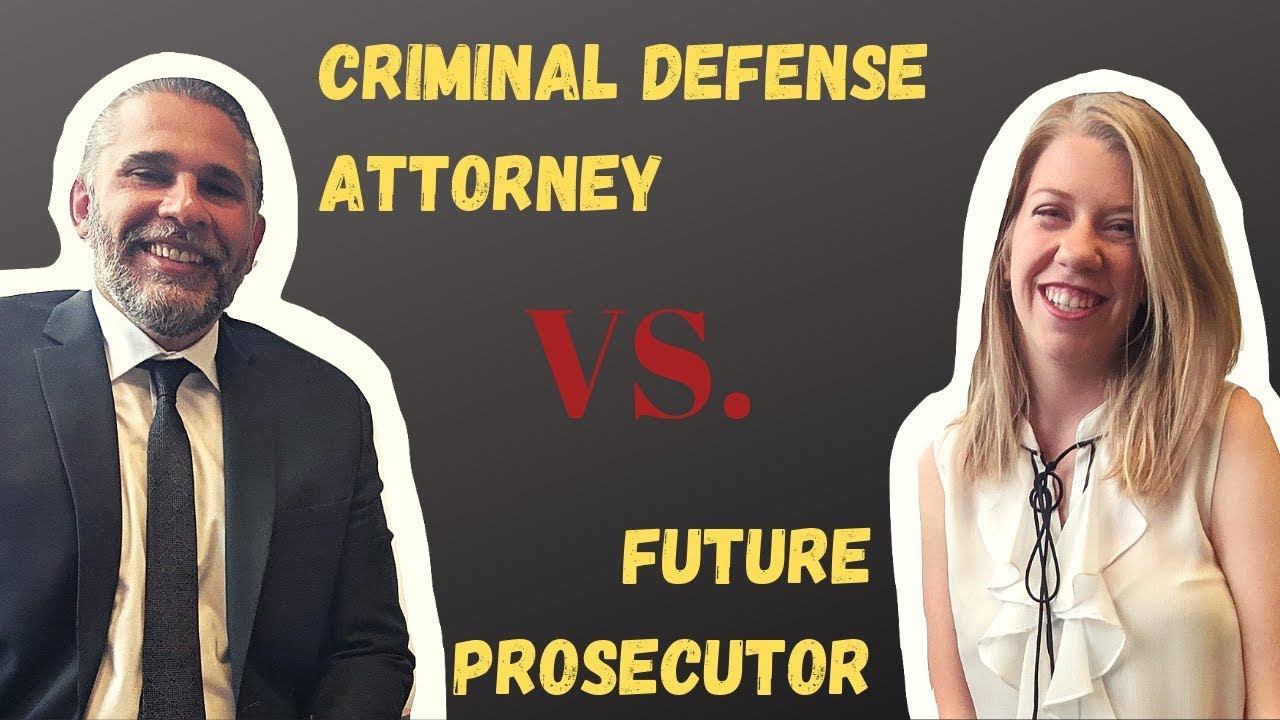The Ethics Of Criminal Defense - Balancing Ethics And Advocacy
The legal profession plays a crucial role in ensuring justice and fairness in society. One of the fundamental pillars of this profession is criminal defense, where attorneys represent individuals charged with criminal offenses. This article explores the ethics of criminal defense, including the role of attorneys in the criminal justice system, the challenges they face, and the ethical principles that guide their actions.
Author:K. N.Mar 14, 20238.5K Shares220.4K Views

The legal profession plays a crucial role in ensuring justice and fairness in society. One of the fundamental pillars of this profession is criminal defense, where attorneys represent individuals charged with criminal offenses.
However, defending clients accused of committing heinous crimes poses significant ethical challenges for attorneys.
This article explores the ethics of criminal defense, including the role of attorneys in the criminal justice system, the challenges they face, and the ethical principles that guide their actions.
The Role Of Attorneys In The Criminal Justice System
The criminal justice system is designed to ensure that individuals accused of crimes receive a fair trial and due process. Attorneys are integral to this process, as they represent clients accused of criminal offenses in court.
The role of defense attorneys is to advocate for their client's interests, protect their rights, and ensure that they receive a fair trial.
Challenges Of Criminal Defense
Defending clients accused of committing crimes can be a challenging and emotionally taxing experience for attorneys. Criminal defense attorneys are often subject to public scrutiny and criticism, which can impact their personal and professional lives.
Furthermore, attorneys must balance their ethical obligations to their clients with their obligations to the court and society as a whole.
The Ethics Of Criminal Defense
The American Bar Association's Model Rules of Professional Conduct set forth ethical principles that guide the actions of attorneys in the United States.
These principles include the duty of zealous representation, confidentiality, and loyalty to clients, as well as the duty to uphold the law and avoid conflicts of interest.
Criminal defense attorneys must navigate these ethical principles to ensure that they represent their clients effectively while upholding the law and avoiding conflicts of interest.
The Duty Of Zealous Representation
The duty of zealous representation requires attorneys to advocate for their client's interests vigorously. However, this duty is not absolute and must be balanced against the attorney's obligations to the court and society.
Attorneys must not engage in conduct that would undermine the integrity of the legal system, including presenting false evidence, suborning perjury, or engaging in unethical behavior.
Confidentiality
The duty of confidentiality requires attorneys to protect their clients' information and not disclose it to third parties without their client's consent.
This duty is essential in criminal defense, as clients must be able to trust their attorneys to keep their information confidential.
However, attorneys must balance this duty against their obligations to disclose information in certain circumstances, such as when required by law or when necessary to prevent harm to others.
Loyalty To Clients
Attorneys owe their clients loyalty and must act in their client's best interests. This duty requires attorneys to avoid conflicts of interest and to represent their clients' interests even when doing so may not be in the attorney's best interest.
Criminal defense attorneys must balance this duty against their obligations to the court and society to ensure that they represent their clients effectively.
Upholding The Law
Attorneys must uphold the law and avoid conduct that would undermine the integrity of the legal system. Criminal defense attorneys must not engage in conduct that would deceive the court or subvert justice, such as presenting false evidence or engaging in unethical behavior.
The Role Of Confidentiality In Criminal Defense Ethics
Confidentiality is a cornerstone of the attorney-client relationship, and it is particularly important in criminal defense cases. Attorneys must keep their client's information confidential, even if it might harm their case.
The ethical obligation of confidentiality serves several purposes. It helps to build trust between the client and the attorney, which is crucial for effective representation.
It also allows clients to be open and honest with their attorneys, which in turn allows the attorney to develop a better understanding of the case and to mount a more effective defense.
However, the duty of confidentiality is not absolute. There are some exceptions where an attorney may be required to disclose confidential information. For example, if a client is planning to commit a future crime, the attorney may have a duty to disclose this information to the authorities.
Attorneys must navigate these complex ethical issues carefully to ensure that they fulfill their obligations to their clients while also upholding the law.

The Ethics of Criminal Defense
Ethics And Advocacy - Navigating The Duty Of Zealous Representation
One of the central ethical principles that guide criminal defense attorneys is the duty of zealous representation. This means that attorneys must do everything in their power to defend their client's interests and to ensure that they receive a fair trial.
Zealous representation requires attorneys to be vigorous and determined advocates for their clients.
However, zealous representation can also create ethical dilemmas for attorneys. Attorneys must be careful not to engage in unethical or illegal behavior in their advocacy, even if it might benefit their client's case.
For example, an attorney cannot knowingly present false evidence or encourage a client to lie on the witness stand. The duty of zealous representation must be balanced with the attorney's obligations to uphold the law and to maintain their professional ethics.
People Also Ask
What Are The Ethical Considerations In Criminal Defense?
Criminal defense attorneys face significant ethical challenges, including the duty of zealous representation, confidentiality, loyalty to clients, and upholding the law.
How Do Criminal Defense Attorneys Balance Their Ethical Obligations?
Criminal defense attorneys must balance their ethical obligations to their clients with their obligations to the court and society as a whole. They must ensure that they represent their clients effectively while upholding the law and avoiding conflicts of interest.
What Are Some Of The Challenges Of Criminal Defense?
Defending clients accused of committing crimes can be a challenging and emotionally taxing experience for attorneys. Criminal defense attorneys are often subject to public scrutiny and criticism, which can impact their personal and professional lives. Furthermore, attorneys must balance their ethical obligations to their clients with their obligations to the court and society as a whole.
What Ethical Principles Guide Criminal Defense Attorneys?
The American Bar Association's Model Rules of Professional Conduct set forth ethical principles that guide the actions of attorneys in the United States. These principles include the duty of zealous representation, confidentiality, and loyalty to clients, as well as the duty to uphold the law and avoid conflicts of interest.
Conclusion
The ethics of criminal defense is an essential aspect of the legal profession that ensures that individuals accused of crimes receive a fair trial and due process.
However, defending clients accused of committing heinous crimes poses significant ethical challenges for attorneys. Criminal defense attorneys must balance their ethical obligations to their clients with their obligations to the court and society as a whole.
They must ensure that they represent their clients effectively while upholding the law and avoiding conflicts of interest. By navigating these ethical principles, criminal defense attorneys can ensure that justice is served in the legal system.

K. N.
Author
Latest Articles
Popular Articles
